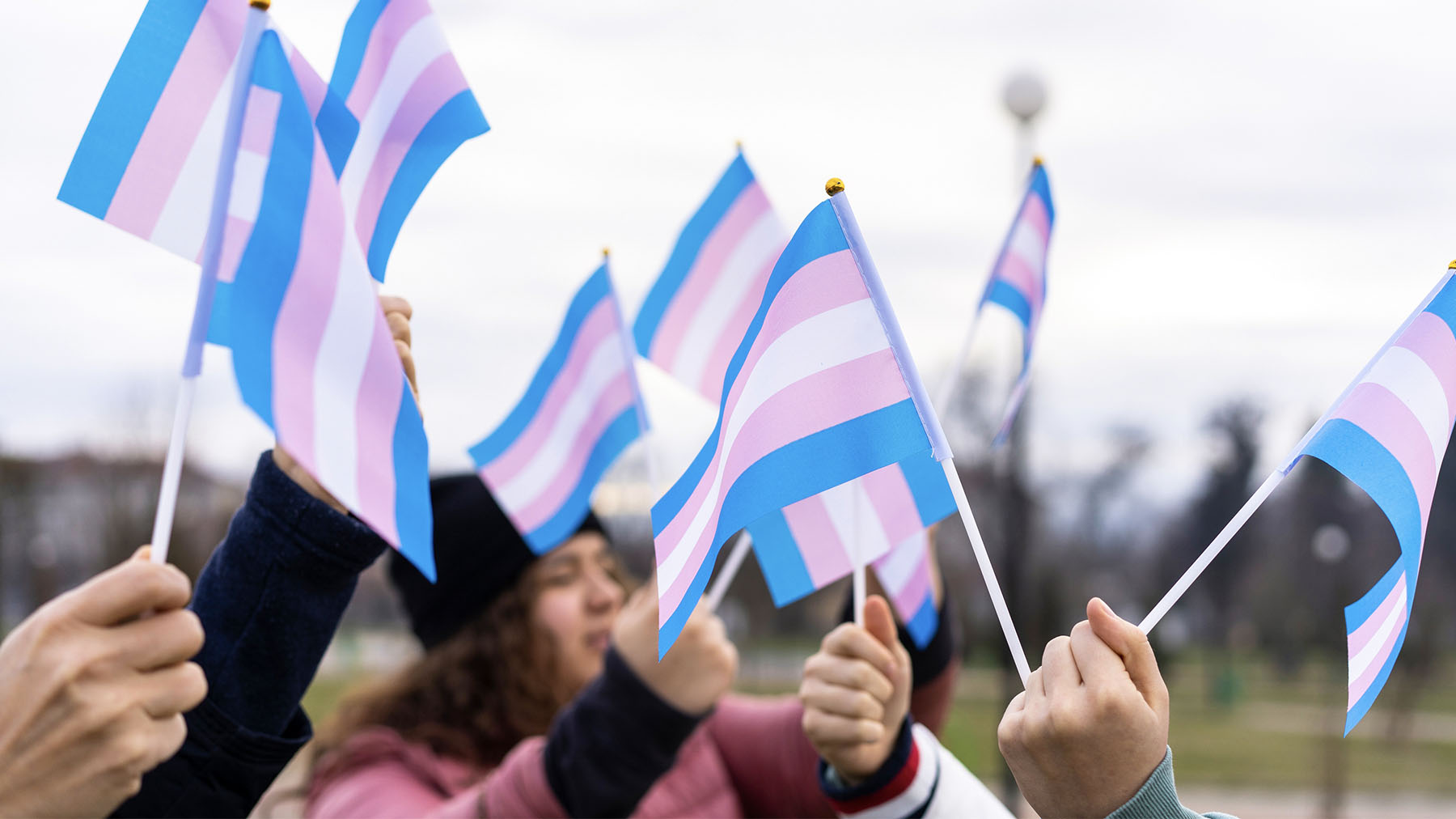On March 31, the world observes International Transgender Day of Visibility. The observance, started by trans advocate Rachel Crandall Crocker, was intended to both recognize the important contributions of transgender people to their communities across the world and call the world to action, to end prejudice against trans people.
On this year’s Transgender Day of Visibility, we see and honor the experience of transgender and gender-non-conforming people (GNC), especially where visibility is not possible because of transphobia and oppression, and we are committed to challenging the structures and systems that seek to render trans and GNC people invisible.
We affirm the lives of transgender people and resolve to fight to make our democracy and country inclusive, safe and accessible for all those people who are targeted and marginalized by anti-trans extremism and oppression. We must name and reckon with the attempts by right-wing extremists to sow hatred, fear and distrust of our transgender family – many of whom are brazenly intent on “eliminating” transgender people from society. We also must name and reckon with the ascendency of anti-transgender political extremism that has justified attacks on the bodily autonomy and humanity of transgender people, their families and caregivers in recent years.
Transgender Day of Visibility is more important now than ever. Despite positive trends in attitudes about transgender rights that lead most people to support nondiscrimination protections for transgender people, research shows the public can potentially be easily manipulated by disinformation about transgender identity. The anti-LGBTQ+ movement has been engaged in such a campaign since at least 2015.
Since then, anti-LGBTQ+ groups have forced a public debate over the rights of transgender children and adults but know the visibility of transgender people can sway the outcome against them. To counter the power of trans lives and experiences, the far-right has used disinformation to stoke violence, attempting to erase transgender people from all aspects of society.
Their goal is transgender invisibility.
Trans lives, experiences and representations are attacked and erased by buzzwords like “sterilization,” “mutilations” and “dangerous experimental treatments.” Trans identities are minimized as spread through “social contagion.” These phrases proliferate online and find their way into legislative hearings and school board meetings, posters and signs outside hospitals, and are repeated in interviews and in media coverage of transgender communities.
Over the past several years, disinformation has led to policies that single out transgender people for discrimination and stoke anti-LGBTQ+ violence. So far this year, over 400 bills targeting LGBTQ+ people have been filed. They represent the most extreme attack on transgender people in recent memory. This year, new laws have denied transgender children the chance to learn and thrive in school by banning discussion of LGBTQ+ families and prohibiting transgender children from playing sports. Other laws take away life-saving medical care from transgender children and adults alike. Still other laws ban freedoms like private assemblies and personal expression and speech in the guise of prohibiting drag performances, which are simply a satirical send-up of gender roles.
The effect is not just legislative. Multiple hospitals, libraries and schools have been targeted, some receiving bomb threats arising from calls by right-wing pundits, politicians and social media personalities, to rally against what they falsely characterize as a shadowy industry that is “recruiting,” “transing” or “grooming” kids.
The truth is gender affirming care is deeply researched and agreed upon by every official medical institution. In addition, the World Professional Association of Transgender Healthcare (WPATH) is devoted to creating standards of care and best practices. Gender affirming care for minors usually entails social transition, which is simply the child changing their name and clothing to fit their gender identity more closely.
Once the child starts to reach adolescence doctors, parents and the child decide if puberty blockers are necessary. These treatments are reversible and the child will experience puberty once coming off them. This is a decision made between the family and medical professional. Surgery comes much later and usually occurs post-adolescence.
Transgender individuals should be able to access the best practices of gender-affirming care at all ages. The disinformation spread by anti-LGBTQ+ and anti-trans figures and groups put all children at risk and do the very same irreparable damage they accuse gender-affirming care providers of and the transgender community who simply want to live.
As states continue to limit the rights of transgender people, the federal government must enforce hate crime and anti-discrimination laws and confront anti-trans legislation by promoting inclusive education resources. None of us can afford to let anti-trans disinformation be the source of our laws.
The Southern Poverty Law Center stands in support of the transgender and gender-non-conforming community not just on this day but every day that anti-LGBTQ+ hate impacts our families, our democracy, our communities and our country.
We will continue to uplift transgender and gender-non-conforming voices and experiences to support and fight alongside the LGBTQ+ community in the face of such hate and vitriol.
Emerson Hodges is a research analyst for the SPLC’s Intelligence Project.
R.G. Cravens is a senior research analyst for the SPLC’s Intelligence Project.
Picture at top: People wave transgender identity flags. (Credit: iStock)



